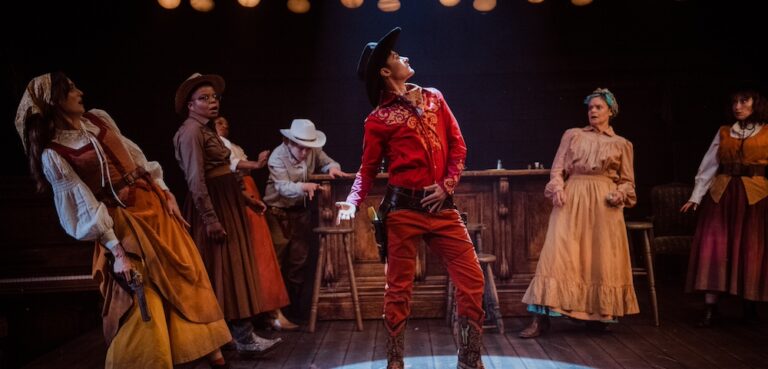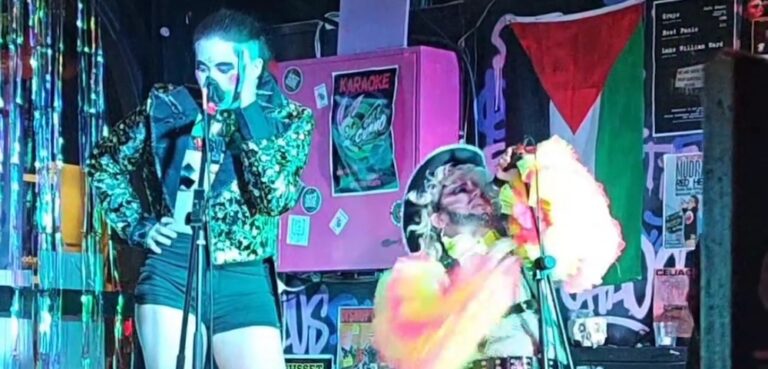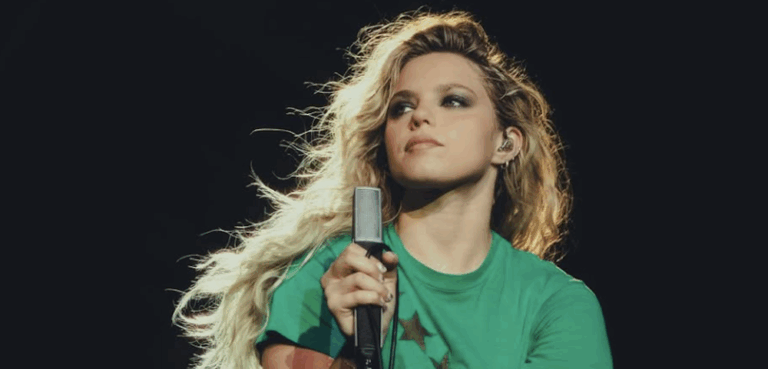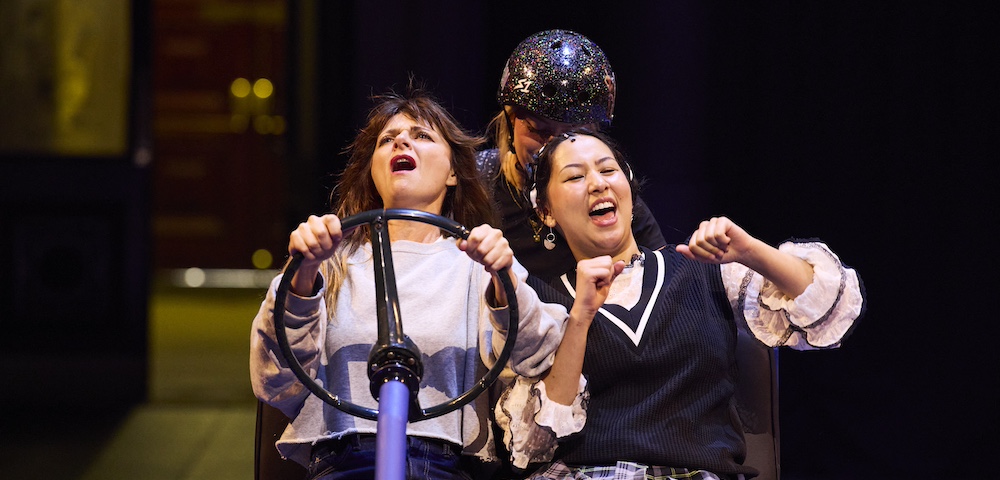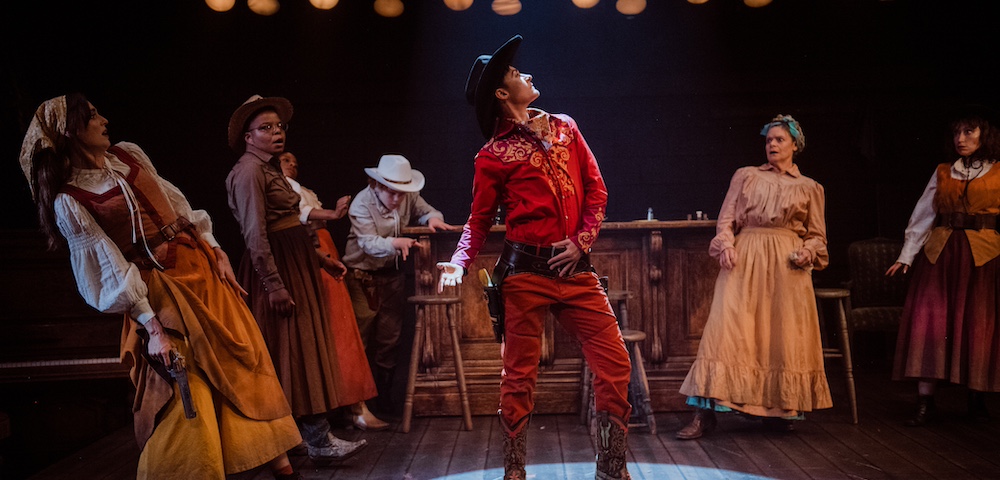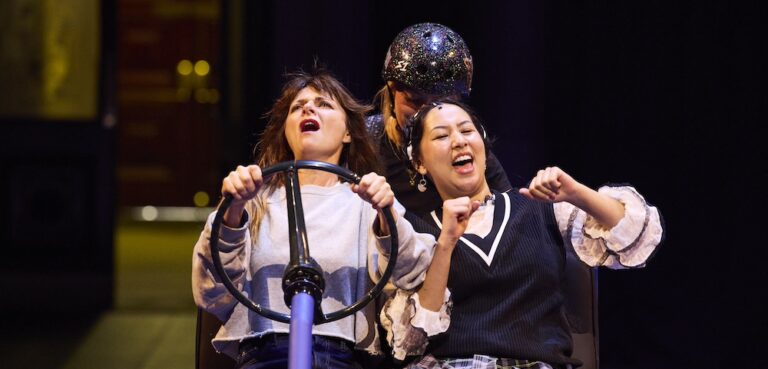
In The Red Rattler Uprising, We Dance and Decolonise
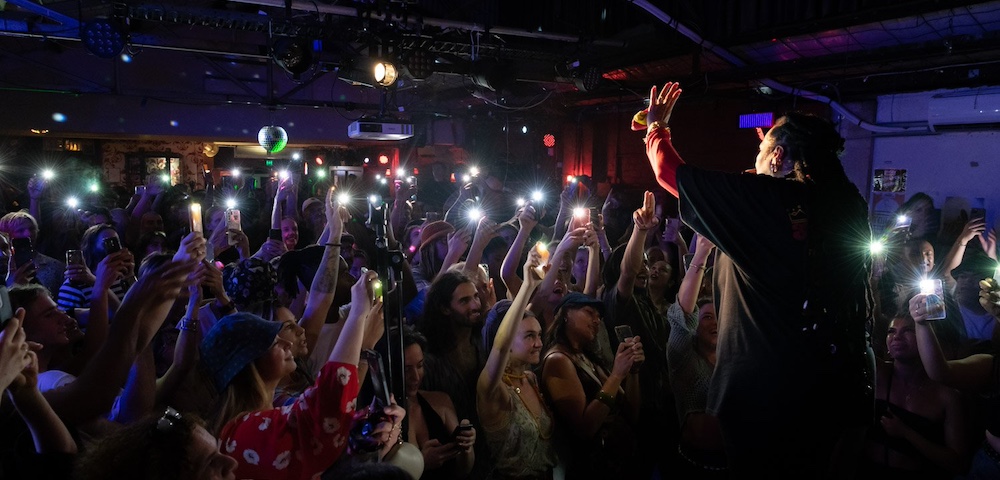
After 16 years serving the community, the city’s most iconic arts, performance, and community space, the Red Rattler, is hosting its very own uprising, celebrating resistance through joy.
The queer-run, artist-led venue on the Wongal lands of the Gadigal Nation we call Marrickville are urgently looking to raise $30,000 by June 30, and are hoping this Friday night’s fundraiser celebrating art, storytelling, and survival will get them over the line, providing a bit more security for the well-loved grassroots space.
The building was purchased by five queer women in 2009 looking to house their independent, alternative art and performances. After a successful ten years, ownership of the Red Rattler was handed over to the community and it’s operated as a not for profit ever since.
The Red Rattler is an institution unlike any other. Last week, their events included the Australian performance debut of Argentinian pop artist Leo García, a writing workshop about resisting erasure, led by award-winning writer/poet and human rights lawyer, Sara M Saleh, and the Sydney premiere of Bam Bam: The Sister Nancy Story, a documentary on the legendary Jamaican dancehall DJ.
“One thing that I really love is when I meet people outside of the space and I mention the Red Rattler, quite often, there’s this reaction that’s like, ‘oh my gosh, I love the Red Rattler!'” says Creative Director of the Rat, Afro-Australian performer and curator, Kween G.
“They say ‘this happened’, or ‘I went to this’ and and it’s always this meaningful reaction that people get.”
There is no succinct way to sum up the sorts of events and communities that are lucky enough to find themselves within the walls of the Red Rat, only to say that they wouldn’t want to be anywhere else.
In a relatively short time, the theatre has carved out a place for itself in the history of the queer and alternative art scene of the country. It played a significant role in Australia’s rapidly growing ballroom scene, where some of those initial balls were held, organised by Bhenji Ra, Mother of the Haus of Slé. Ra went on to found Sissy Ball, which is now one of the largest balls in the Asia Pacific.
The space was also where Lebanese-Palestinian queer storyteller and poet, Candy Royalle, gave her final performance alongside her band, The Freed Radicals, at a monthly poetry night she had been hosting for over a decade.
“I have finally arrived at where I need to be,” she said on the night in 2018.
Once her performance ended, Royalle left the stage and walked through the middle of the crowd, before ascending a flight of stairs and, without turning back, left. She died later that month, aged 37, after suffering from ovarian cancer for years.
The theatre has a mural dedicated to the artist, and Kween says her energy is embedded in the walls of the building.
“That keeps me going,” she said. “Embodying that political activism is important for us. For community to have space where they where they can be, share, and have a space without having all that red tape saying, ‘oh no, you got to say it like this’.”
A reminder that times are changing
With the subheading “Donate. Decolonise. Dance.”, the Red Rattler Upri$ing promises a whole tasting plate of conscious art, performance, learning, and community.
The lineup includes the Buuja Buuja Butterfly Dancers, a Wiradjuri dance group fusing traditional and contemporary movement; RaceRage, a queer Blak rapper coming up from Naarm specifically for the event; local DJs like Papi Chulo and DJ عسل (Honey); and the Deputy Leader of the Greens, Dr Mehreen Faruqi, who is no stranger to the Red Rattler stage.
“It’s hard to bring people in to celebrate when there’s so much chaos and tragedy in the world,” Kween says.
She brings up the regular Palestine rallies in the city, and the protests against Black deaths in custody, which have felt sharper since Kumanjayi White’s death at the hands of police last month. Co-Chair of the Red Rattler, Gumbaynggirr, Bundjalung, and Dunghutti woman Lizzie Jarrett, is a central organiser for many of these through her tireless work with First Nations political organising space, The Blak Caucus.
“We wanted to do something where we, you know, kind of stop and pause and and just respect the times we’re in. Recognising that we are doing it hard. Let’s come together, and let’s not forget that while we’re trying to manage ourselves, it’s important that we keep this space going.”
“There’s a lot of changes in this neighbourhood. There’s high rises going up, left, right and centre. The Wicks Apartment is up and running, and they’re about to build an eight storey building at the timber yards.
“It does put us at risk… if we don’t keep our doors open, keep our mortgage paid and keep our bills going, we can also be added to a list of venues that are going to close.”
With the recent announcement that their sister venue, The Bearded Tit, will be closing later in the year, preserving the venues holding radical art and community feel all the more important, especially as political tides around the world are changing rapidly.
It may be our right to inhabit spaces that reject racism, homophobia, transphobia, ableism and whorephobia, but in times like these, it’s a stark reminder that these sites were hard fought for.
The parties, workshops, gigs, and lectures that we so often take for granted were once someone’s wildest dreams. If we don’t continue that legacy, we could be without them once again.
“That’s kind of the reason why we’re calling it the Red Rattler Uprising,” Kween says. “Because, yeah, we’re saying that we’re not going to go down. We’ve got to stay up.”


